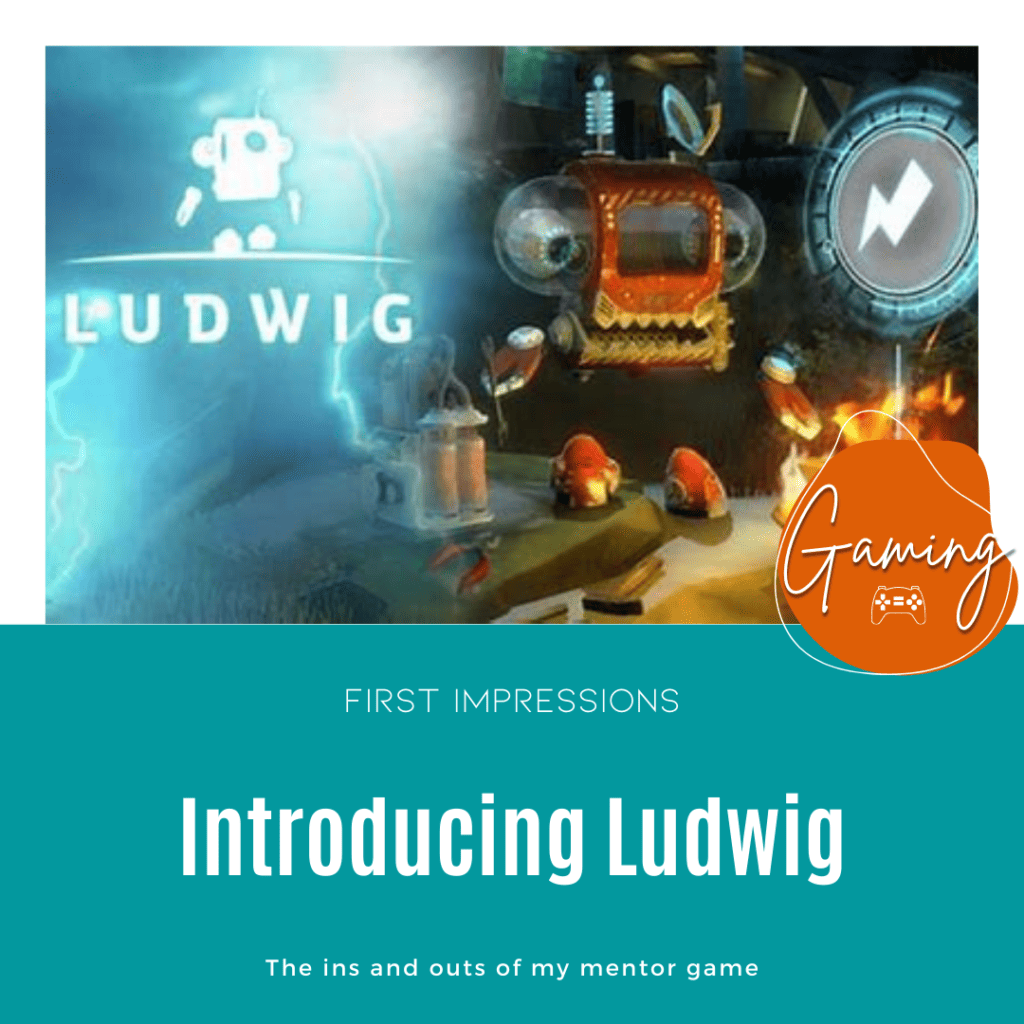LUD-WIG I am unimpressed!
It took me forever to sign up for the game, because who wants to pay for a game, they have never heard of …especially with a $9.99 price tag. Not I… but I signed up after settling with the fact that I was unsuccessful finding a demo version.
The game starts with a leading storyline (which is a basic element to hook the player into the game) of how Ludwig (the robot) and his spacecraft end up on an abandoned earth in 2098. Apparently, all humans have moved to space. Ludwig (the robot) and his trusty yet sarcastic spaceship are off to explore what we have left behind. It’s catchy!

But the player has to read and read and read…it may as well be an interactive story. This is something that first caught my attention. While the game targets elementary aged students, it does not pay special attention to being inclusive to the diverse needs of students. 5 million people or 20% of the American population is bilingual, and in South Africa only 9% of the population speaks English as a first language.
Dr. Danielle Oprean said that we can learn just as much from good designed games as from those that are poorly designed. Ludwig is teaching me what NOT to do.
The game does well in using the senses. It is visually, acoustically attractive. The designers have paid attention to such things as the sound when Ludwig walks and it changes depending on the surface. Or better yet the different types of sound of water depending on what the source is…waterfall vs. under water.
There is an excellent TedX talk by Mark Rober talking about the Super Mario Effect, which proposes the idea that while we play games, we don’t focus on our failures but rather we learn from them. We need to change our frame of mind around failure but especially when it comes to learning and teaching.
So how does this change my perspective? What does it show me? Well for a game to be engaging there has to be an element of pleasant frustration, a challenge…otherwise its plain boring. But it can’t just be frustrating to the point where the player turns it off and never plays again (as would be the case for me and Ludwig, if it weren’t for this class). Carl Kapp states in one of his 13 Learning Principles that Games Can Teach Us that the gamer feels a challenge that he/she knows can be overcome…leading to the gamer state of flow (losing a sense of time). This DID not happen in my mentor game.





